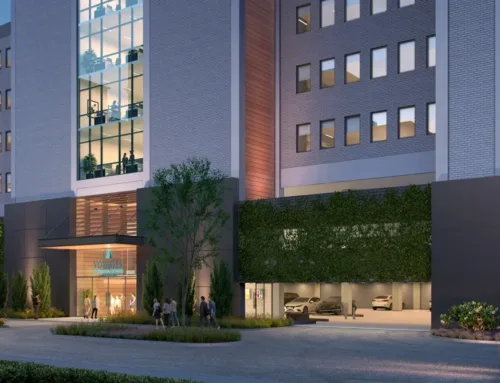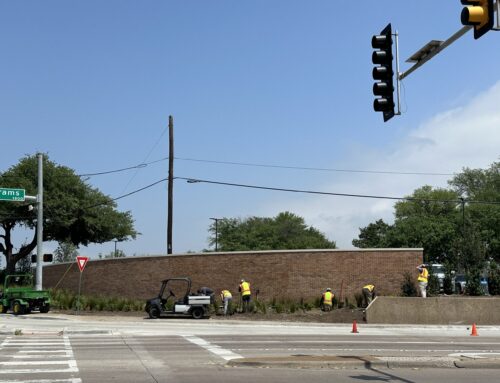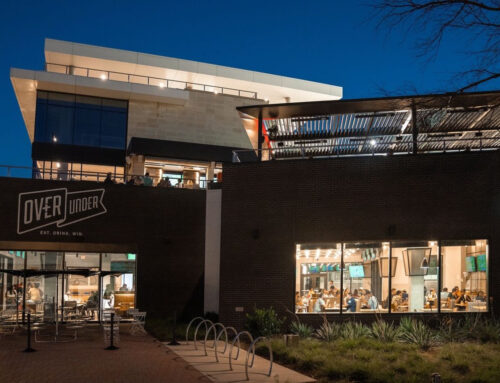Some of you noted the absence of last month’s column, which was “on vacation.” But like Nixon in ’68, the column is now “tanned, rested and ready.”
The biggest single bit of neighborhood news right now may be the apparent collapse of the Dr Pepper adaptive reuse deal. Readers may remember the exhaustive process carried out by Dal-Mac (owners of the Dr Pepper site), nearby neighbors and historic preservationists during the past couple of years to save the old Dr Pepper building on Mockingbird and Greenville.
An agreement was reached to retrofit the Art Moderne landmark for retail use, prospective tenants were lined up (including Barnes & Noble bookstore), and attractive renderings were drawn. The deal was celebrated at the time as a triumph of consensus building and cooperation.
Well, as the saying goes: “Stuff happens.”
Things have changed, in particular the real estate business.
What a couple of years ago was perceived as a strong retail market and a soft office market is now seen differently with premium office space being absorbed and retail in danger of being overbuilt in some areas.
Dal-Mac recently announced that the plan for the retail conversion was kaput and that office space was now the most likely use for the building. The façade and clock tower, at least, may be saved and incorporated into new designs.
While this undoubtedly makes sense for Dal-Mac from an economic standpoint and is a sensible land use next to a major DART station, preservationists are dismayed. Unfortunately for them, from a legal standpoint, they are holding a weak poker hand, as Dal-Mac currently has the zoning needed to build offices on the site.
The lesson here appears to be that reaching a consensus is great from a “feel-good” perspective, but unless everyone has actually signed a development agreement or entered into planned development zoning that is legally enforceable, changing conditions can render a consensus moot.
Deep Ellum Land Uses Debated By Council
The City Council recently considered and adopted, after some heated discussion, amendments to the Deep Ellum Planned Development District ordinance. The amendments were developed over a number of months by a working group comprised of representatives of area businesses and major property owners, as well as Deep Ellum Association representatives.
The purpose of the proposal was to foster uses in Deep Ellum such as art galleries, high quality residential units and retail, while not impinging on the area’s thriving restaurant and club scene. This would be done by easing some parking and other restrictions to encourage the desired uses.
On the other hand, the amendments would prohibit some uses that were seen as being detrimental to the area, such as topless clubs, pawn shops and day labor agencies.
One innovative proposal, created by your humble columnist from scratch (since it’s not in the development code), prohibits retail uses making more than 10 percent of their gross revenue from firearms sales; that is, gun shops.
The most controversial proposal by far was to require a Specific Use Permit for new tattoo and body-piercing salons (existing ones are “grandfathered”). Debate centered on the right to free expression and whether it’s good land use to have such a remarkable concentration of tattoo parlors in what really is a fairly small area.
Cinemark Controversy
Finally, a brief comment on the recent controversy about the settlement of the Tinseltown lawsuit between the City and Cinemark.
One thing to remember is that there was, and is, a legitimate difference of opinion as to the City’s legal position and whether a court would ultimately have upheld the City’s defense of it s actions in opposing Cinemark’s plans.
The City attorney’s office has sometimes been known to take very cautious positions when there is a threat of legal action against the City, and some feel the City perhaps should not have been so anxious to settle.
The other point is that after all the talk about alleged leaks, one should remember that the Council as a whole has a reputation for leaking information out of executive session like a sieve.
At least one of the Council members who complained loudest about the so-called leaks is well known to be a prime source of inside information on the arena negotiations and other executive session topics for a well-known weekly newspaper columnist.





